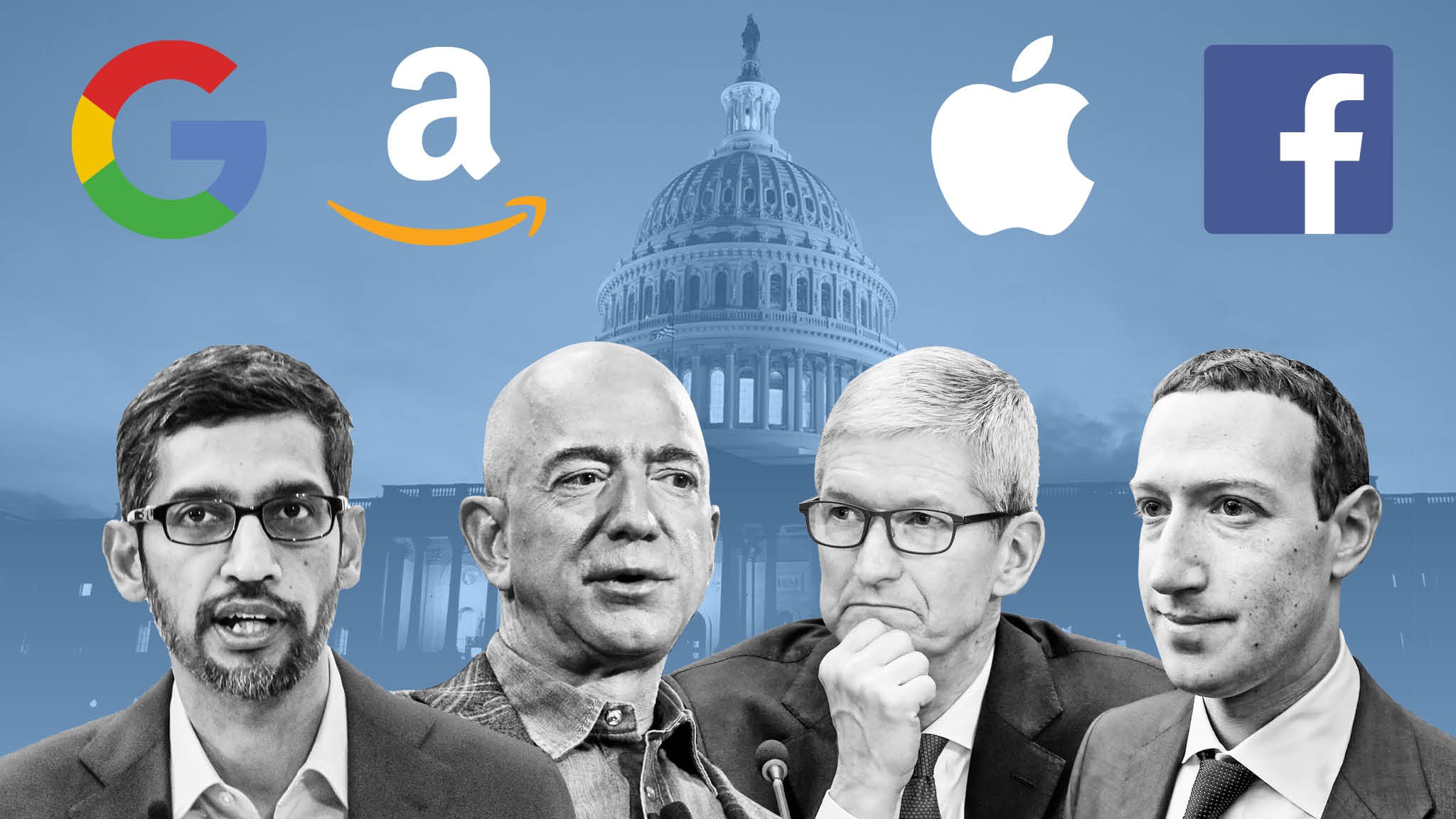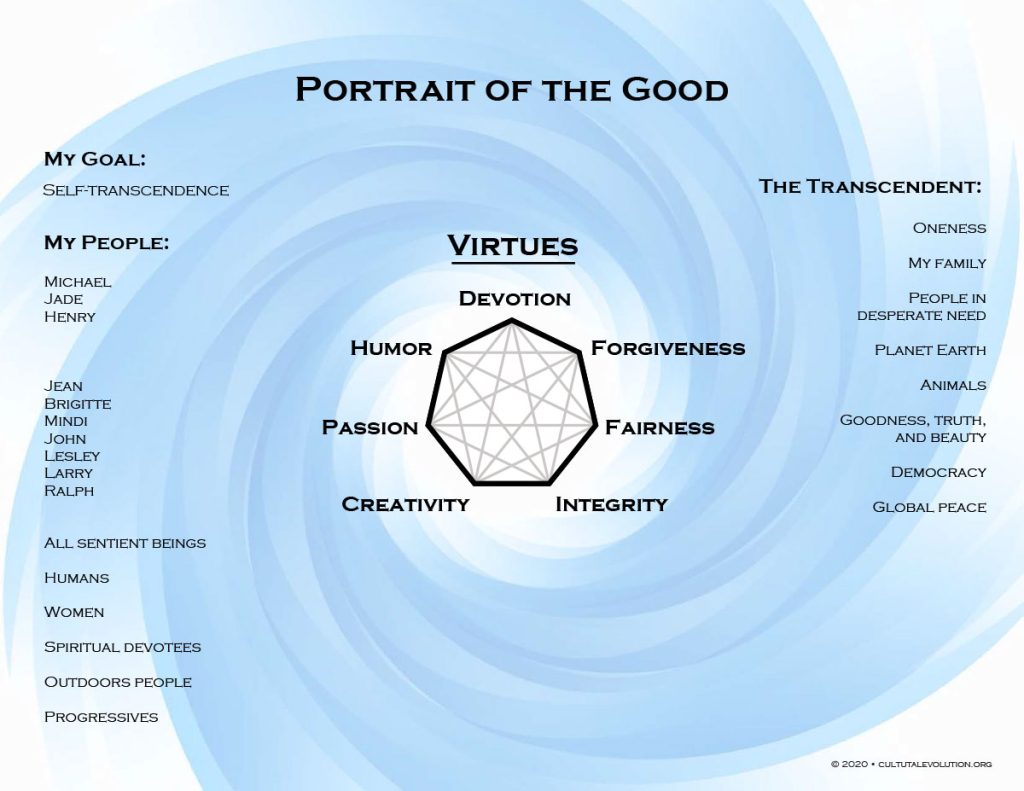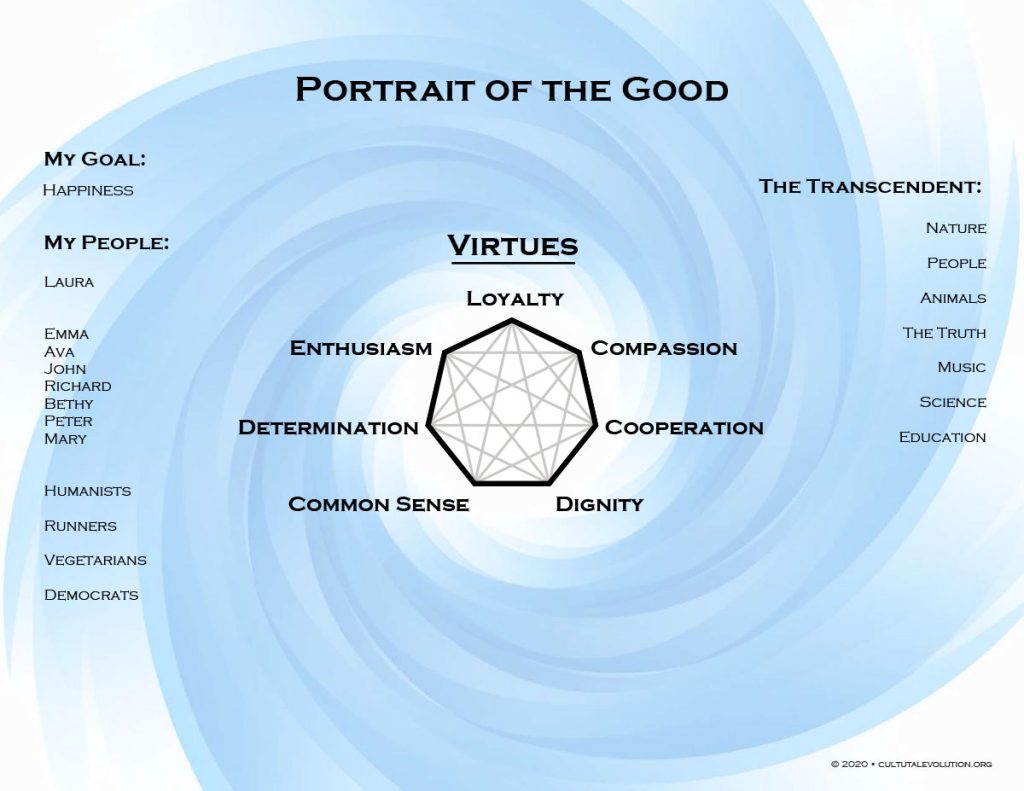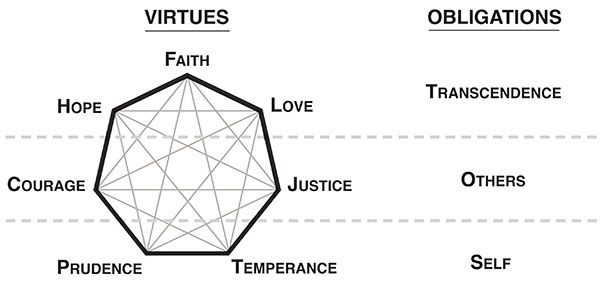Big Tech Governance
Introduction to Our Policy Proposal for Regulating Large Technology Companies and Social Media Platforms
The advent of the internet and the subsequent rise of the digital economy has created enormous social and economic value. American technology companies have led the way and now represent 12% of total U.S. GNP, and since 2016, these companies have grown America’s economy by 22%.1 Yet as we now enter more fully into the “digital age,” the laissez-faire regulatory environment that helped give birth to America’s tech industry must be superseded by laws that exert greater democratic control over this industry, which has become dominated by enormous, quasi-monopolistic digital platforms. The United States, in concert with the world’s other liberal democracies, should accordingly work to ensure that these powerful international corporations are constrained by the rule of law and governed in accordance with the public interest.
Prominent tech investor and bestselling author Roger McNamee has well-articulated the urgent need for more effective regulation of “Big Tech.” Decrying the harm brought about by the growing power of platforms such as Facebook, Google, Apple, Amazon, Twitter, YouTube, Instagram, and TikTok, McNamee writes: “They are very much in the business of manipulating attention in order to get you to spend more time on [their services]. And that is a very dangerous business model for society. It’s bad for the mental health of the people who use it. It’s terrible for democracy. It’s completely destroyed any sense of privacy, and it’s undermined entrepreneurship in the United States, because these companies essentially pick off one industry at a time and disrupt it in a way that destroys the old without replacing it with something of equal value.”2
In response to the growing realization of the harms that Big Tech is inflicting on our democracy and culture, over the past twelve months eleven new bills have been proposed in Congress, with each bill designed to address a different aspect of Big Tech’s “dangerous business model.”3 Most of these bills, however, have little chance of becoming law. And among these bills, even the one with the most bipartisan support — The American Innovation and Choice Online Act — is currently hampered by significant opposition from business interests.4
Meanwhile, the European Union has moved forward with its own tech regulations with the landmark passage of the Digital Services Act and the Digital Markets Act.5 While these new E.U. laws may reduce some of the antisocial impacts of Big Tech platforms on European populations, these laws may also reduce the value that Europeans currently derive from using these technologies. Even though the digital technology industry is highly profitable, this industry is nevertheless constrained by intense financial performance pressure. Leading companies within this industry have risen to prominence within a fragile ecology of markets, which can be easily disrupted, resulting in harm not only to these companies’ bottom lines, but also to all stakeholders in the digital economy. These digital stakeholders include users, customers, employees, contractors, entrepreneurs, investors, local communities, and crucially, America’s economy and democracy as a whole.6 And because all of the platforms listed above are American companies (with the exception of Tik Tok), most of the negative impact that these European laws will have on Big Tech’s stakeholders will be borne by Americans rather than Europeans. In their transatlantic competition with the United States, E.U. regulators accordingly see the harm these laws will inflict on U.S. companies and their stakeholders as “a feature not a bug.” In short, while technology users in the U.S. certainly need better protections, they have a greater collective interest in protecting the fortunes of America’s tech industry than their European counterparts.
Underscoring the harm to American companies that the European Digital Services Act and the Digital Markets Act are expected to create, U.S. Commerce Secretary Gina Raimondo recently wrote: “The Acts aim to bolster competition and enforce content moderation in the EU. But we have serious concerns that these proposals will disproportionately impact U.S.-based tech firms and their ability to adequately serve EU customers and uphold security and privacy.”7
Yet while these new E.U. laws may not be ideal for digital stakeholders in the U.S., neither is America’s current laissez-faire regulatory environment. Now that the negative impacts of Big Tech have become apparent, the leaders of America’s technology industry have an opportunity to demonstrate good corporate citizenship by working with U.S. lawmakers to craft meaningful regulations that will effectively ameliorate the antisocial impact of their platforms, not only for the sake of American democracy, but also for the long term vitality of their own industry.
However, in order to craft these needed regulations with a deft hand — to strike the kind of delicate balance required to integrate the interests of all digital stakeholders — the tech industry needs partners in Congress who are digitally literate and who understand the fragile ecology of markets in which this industry operates. Notwithstanding the growing bipartisan determination to rein in Big Tech, U.S. lawmakers do not yet have the technological expertise required to regulate this industry without hobbling it and harming its stakeholders. Increasing the “digital intelligence” of congressional regulators is therefore crucial for the creation of the public-private cooperation necessary to transition from our current laissez-faire regulatory environment to a system of tech governance that will preserve this “crown jewel” of America’s economy.
The market pressures that exacerbate Big Tech’s negative externalities, such as its “race to the bottom” for user engagement, can be reduced through smart “rules of the road” designed to relieve these competitive pressures and create a level playing field for all industry participants. And we believe that most tech executives will welcome such “win-win-win” regulations if they are carefully crafted to balance the needs of all industry stakeholders, including America’s democracy. As McNamee writes: “The future of our democracy, public health, privacy, and competition in our economy depend on thoughtful and comprehensive regulatory intervention.”8 But in order to be “thoughtful and comprehensive,” the new U.S. regulatory regime we need must be designed by digitally fluent lawmakers acting in concert with responsible tech executives.
Problems to Be Solved
1. Harmful business practices polarize our society and threaten our democracy
The business models of most large tech companies are based on advertising revenue, which has created an “attention economy” that incentivizes these companies to increase user engagement through disinformation and extremist content. In a report for the Brookings Institution, Clara Hendrickson and William A. Galston write: “the structural design of the attention economy has given rise to disinformation and its rapid spread online. Today’s powerful technologies … have coarsened public discourse by satiating the appetite for political tribalism, serving up information — true or false — that accords with each users’ ideological preference. … Unlike political advertisements broadcast on television or radio which are subject to strenuous disclosure requirements, online political advertisements face few constraints. This omission has allowed bad actors to leverage the power of online platforms to individually curate to each voters’ ideological preferences and biases.”9
2. Lack of privacy and control of our personal data results in manipulation and abuse
Roger McNamee frames this privacy problem well: “Privacy has been on the radar of policy makers since the Cambridge Analytica scandal. The data economy evolved over decades, and government largely took a hands off approach. Corporations asserted ownership to any data they touched, as well as the right to use or transfer it without restriction. Smartphones and the internet enabled the tracking of every human activity, making it possible to capture a complete digital representation — what the activist Tristan Harris calls a ‘data voodoo doll’ — of every consumer. Credit card purchases, financial records, employment history, cell phone location, medical tests and prescriptions, browsing history, social media activity all create data that is deeply personal and available in a data marketplace. Marketers and internet platforms use this data to understand, predict, and manipulate our behavior. This is not just about advertising. Marketers and platforms also limit the choices available to us, without us even being aware. Worse yet, data about other people can be used to manipulate and exploit our vulnerabilities.”10
3. Secret algorithms and lack of platform transparency prevent political and economic oversight
As described by the Brennan Center for Justice: “Social media companies often shield themselves from scrutiny of the harm they cause by refusing to disclose information. … Facebook has clamped down on researchers attempting to study political ads on the platform. Platforms’ terms of service commonly forbid researchers from using essential investigative tools … Existing platform-provided tools … offer tightly circumscribed and spotty information to the public and to researchers. Algorithm-driven personalization of social media feeds also means that individuals are exposed to different kinds of information and have little basis to compare their online experiences. As a result, the public and policy debate about social media platforms’ impact remains woefully underinformed.”11 As Ashkan Soltani, former chief technologist at the Federal Trade Commission, observes: “Sadly, because this ecosystem is primarily hidden from view and not transparent, consumers aren’t able to see and understand the flow of information.”12 This lack of transparency also facilitates politically motivated censorship, which has motivated many Republicans to attempt to breakup Big Tech’s concentrated corporate power.
4. Data monopoly gatekeepers undermine autonomy and stifle competition
Platforms such as Google, Facebook, Apple and Amazon have used their enormous scale and network effects to stifle competition and undermine the autonomy of users, suppliers, and communities. Unless new regulations are passed that update antitrust and common-carrier laws to respond to the unique features of the digital economy, these platforms will have no incentives to improve their practices, and users will be left with no alternatives.
5. Most U.S. lawmakers are technologically illiterate and lack a purposeful digital strategy for the healthy growth of America’s tech industry
A paper by the pro-market think tank R-Street Institute frames the problem well: “Technological complexity has grown fantastically over the past two decades and there is no reason to believe the pace of innovation will slow. But as technology advances, it also creates challenges for our elected officials to comprehend its impacts and to enact sensible policies around it, which includes updating and clearing out old laws and regulations.”13
Wins Sought for Each Major Worldview
As outlined in our recommendation below, by: 1) convening an annual congressional regulation summit tasked with crafting regulations that integrate the interests all digital economy stakeholders, 2) increasing the technological literacy of lawmakers, and 3) building on the recent first round of regulatory bills, we hope to provide “wins” for each of America’s major cultural worldviews, as follows:
Progressivism’s Wins
Effective regulation will provide wins for progressives by checking the unfettered power of corporations and big business, and by restoring public interest oversight to the digital economy.
Modernity’s Wins
Bipartisan regulation that deftly integrates all tech industry stakeholders will provide wins for modernists by preserving the economic environment necessary for ongoing technological innovation, and by reducing monopolies and crony capitalism through increased competition.
Traditionalism’s Wins
Effective regulation of Big Tech will similarly provide wins for conservatives and traditionalists by providing a check against the evident progressive bias of many of tech platforms, and by providing greater transparency and accountability.
Everyone’s Wins
Finally, all Americans will win by disempowering hate and extremism, and by increasing personal privacy.
Our Recommended Policies
1. Convene an annual congressional technology regulation summit that brings lawmakers together with all of the digital economy’s stakeholders
Due to the dynamic complexity of America’s tech industry, crafting legislation that will adequately account for the legitimate interests of all stakeholders will require a working partnership between lawmakers and the tech industry. Such a public-private partnership does not necessarily entail favoring special interests or capitulating to corporate power. As discussed above, almost all Americans are stakeholders in the digital economy. So rather than convening adversarial hearings with one company at a time, wherein lawmakers merely demonstrate their ignorance of this complex industry and get little done, as the first of three components of our recommendation, we propose an annually recurring “congressional technology regulation summit.” This proposed high-profile national summit would bring lawmakers together with all the major stakeholders in the digital economy, including the leaders of America’s tech industry, who would have a prominent seat at the table. Unlike in Europe, where tech companies have been frozen out of the legislative process, in order to craft effective regulations for the U.S., tech executives need to be directly involved.
Admittedly, in our present moment of strong political will to “rein in Big Tech,” the large platforms are already exerting considerable influence on lawmakers through their intense lobbying efforts. The impact of this lobbying can be seen in the reluctance of lawmakers on both the left and right to vote in favor of legislation that is opposed by Silicon Valley. Although there is strong bipartisan support for the pending antitrust bill cited above — the American Innovation and Choice Online Act — there is also countervailing bipartisan resistance to this and similar bills. For instance, Nancy Pelosi (D-CA) and Kevin McCarthy (R-CA) are California-based lawmakers who are politically opposed on almost every issue. Yet they are both working to protect the interests of California’s tech industry.
Despite mounting evidence of the negative impacts of Big Tech on our society, the ongoing lack of effective regulation testifies to Big Tech’s political power. This political power, however, is partially based on the fact that maintaining the innovative vitality of the tech industry is in America’s overall interest. So rather than trying to quash this power, which is currently politically impossible, it would be better to bring it out into the open. Rather than allowing Big Tech’s power to be exerted by individual companies lobbying for their specific interests behind closed doors, industry concerns would be better voiced in a public forum such as our recommended congressional technology regulation summit, wherein tech industry interests would become more transparent, and thus subject to media scrutiny and open debate.
Instead of creating a new executive branch bureaucracy to govern Big Tech (as recently proposed by Senator Michael Bennet and discussed at the end of this paper), regulating this industry through an ongoing annual congressional summit that includes all stakeholders would provide a more fluid and open approach better suited to the fast moving nature of this dynamic industry. By working with a flexible schedule of regulations that could be reviewed and adjusted annually, like turning dials on a machine, summit participants would be able to “move fast and govern things.” Fleshing out the operational details of this proposed annual congressional summit is beyond the scope of this paper. But we hope to revisit this potential alternative to governance by administrative state bureaucracies in the context of a future paper.
2. Increase the technological literacy of lawmakers
The effectiveness of such an annual congressional summit, however, would also depend on increased technological literacy on the part of lawmakers and their staffs. According to Silicon Valley congressman Ro Khanna (D-CA), “there has been a dereliction of duty in Congress and a technological illiteracy for many years. … There’s probably been too much of a deference to these companies in the past, but now it’s led to an overreaction the other way where there’s an urge to act but a lack of understanding and expertise about what is needed.”14 Congress’ current lack of digital expertise points to the second aspect of our recommended approach to governing Big Tech, which involves supporting both public and private initiatives to educate lawmakers and their staffs about the nuances of the dynamic tech industry.
On the public side, we recommend reviving the Office of Technology Assessment (OTA). As urged by both the R-Street Institute (quoted above) and the Brookings Institution, “in order to build the capacity to successfully meet the next wave of technology policy debates, Congress needs to revive the in-house expertise and in-depth research functions of the [OTA]. Originally created in 1972, this congressional agency was defunded in 1995 as part of a larger effort to reduce government spending overall. But since 1995, the U.S. economy has witnessed a technological revolution, and the need for greater technological aptitude in Congress has thus become acute. The authors of the R-Street Institute paper put it succinctly: To address technological illiteracy, “Congress needs to bring back its nerds.”15Congress could ensure the effectiveness of a revived OTA by recruiting a prominent and respected person in the tech world to lead the organization’s renewal. Such a high-profile leader could help recruit top tech talent to staff the organization by appealing to patriotism (and fame), and by creating the kind of esprit de corps that would give the OTA clout and influence.
In this context it is important to note that the OTA is not a rulemaking bureaucracy situated within the executive branch. Unlike the FCC or the FTC, a revived OTA would only supply nonpartisan technological expertise to lawmakers, and would not attempt to write regulations. Our proposal is thus distinct from the recent Senate bill advanced by Michael Bennet, which, as discussed in the final section, seeks to establish a new executive branch bureaucracy to regulate Big Tech.
Beyond reviving the Office of Technology Assessment, the project of increasing the technological aptitude of Congress is also being pursued by two notable nonprofit organizations, which we commend. The first is TechCongress, which was incubated at the Open Technology Institute at New America. TechCongress funds fellowships for young technologists to work directly with congressional staffers, and it has successfully placed tech fellows equally in both Democratic and Republican congressional offices. The second notable nonprofit effort to increase the digital literacy of lawmakers is Future Congress, which is a group of more than 20 bipartisan advocacy organizations. Future Congress acts as a “resource hub” dedicated to improving science and tech expertise in the legislative branch.16
3. Use the current slate of pending legislation as “first drafts” for what can eventually become a comprehensive technology governance act that will effectively integrate all the stakeholders of America’s digital economy
The third and final element of our recommendation involves the disposition of the numerous tech regulation bills currently circulating in the House and Senate, which are summarized in the next section. Although these bills generally represent a commendable first effort, as of this writing, most of these pending bills appear doomed to fail, especially with Democrats facing a loss of both houses in the coming 2022 midterm elections. Indeed, even the pending antitrust bill with the strongest bipartisan support — the American Innovation and Choice Online Act — has only an even chance of passing.
The respective focuses of each of these pending bills nevertheless underscore and define the specific “problems the be solved,” which were outlined above. Taken together, these eleven bills thus represent the “rough first drafts” for what can eventually become the elements of a more comprehensive landmark technology governance act, which would be similar in scope to the two E.U. Acts, but which would better integrate all the stakeholders of America’s tech industry. And again, the viability and efficacy of such a comprehensive governance act would depend on Congress taking action to significantly increase its own technological literacy as a prerequisite to the act’s drafting and administration.
Overview of Currently Proposed Regulations
This final section provides a summary of the pending tech regulation bills currently circulating in the House and Senate. Our summaries of these bills are organized around the five “problems to be solved” first identified above. These five problem areas can be simply stated as: anti-social algorithms, user privacy, operational transparency, platform monopoly, and technological literacy.
1. Anti-social algorithms
By working to maximize engagement by appealing to users’ “lizard brain,” Big Tech platforms are causing both individual psychological harm and collective social harm. Individual harm is inflicted when vulnerable people become radicalized through constant exposure to algorithmically-curated extremist content. Social harm is inflicted on America’s electorate through hyperpolarizing content which is similarly algorithmically-curated to satiate peoples’ appetite for political tribalism. Both of these harms can be ameliorated by reducing liability protections under section 230, which currently provides blanket legal immunity for platforms that publish third-party content.
An example of a pending bill which would reduce the harm caused by anti-social algorithms is: The Protecting Americans from Dangerous Algorithms Act (H.R. 2154). This bill removes section 230 immunity from social media companies with more than 10 million monthly users if they utilize an algorithm to amplify or recommend content that interferes with a user’s civil rights, or promotes acts of international terrorism. (Introduced in March, 2021 by congressman Tom Malinowski, D-NJ). A similar bills is: The Justice Against Malicious Algorithms Act (H.R. 5596). This bill similarly limits the liability protection provided by section 230 from social media companies with more than 5 million monthly users if they “recklessly recommend” material which contributes to a physical or severe emotional injury to any person. (Introduced in October, 2021 by congressman Frank Pallone, D-NJ)
Also, the European Union’s Digital Services Act (which is expected to come into force as early as 2024) will require Big Tech giants to police illegal content on their platforms more aggressively, or else risk potential multibillion-dollar fines. “The Digital Services Act also stipulates that the end user must be offered at least one recommender algorithm option that is ‘not based on profiling,’ or any of the sort of information usually collected for targeted advertising.”17
2. User privacy
As Big Tech assembles comprehensive profile data on every user, the pernicious effects of these “data voodoo dolls” are becoming increasingly evident. Examples of legislation designed to protect privacy include this pending House bill: The Augmenting Compatibility and Competition by Enabling Service Switching Act “ACCESS” (H.R. 3849). Under the ACCESS Act, large online platforms are required to maintain their interfaces in a manner that is interoperable with competing businesses and that enables user data to be portable. (Introduced in June, 2021 by congresswoman Mary Gay Scanlon, D-PA)
States unwilling to wait for national legislation have recently begun enacting their own privacy laws, led by: California’s Privacy Rights Act (CPRA), which was passed in the November 2020 ballot by 56% of California voters. The CPRA imposes stringent privacy protection obligations on organizations and greatly increases the rights of consumers. The law applies to businesses and entities located in California or anywhere serving products or services to a California resident. The CPRA will take effect on January 1, 2023. Virginia, Colorado, Minnesota, Connecticut, Washington and Utah have recently enacted similar laws.
Going beyond these U.S. state laws, the European Union’s Digital Services Act bans targeted advertising to minors, as well as targeted advertising based on sensitive personal information, including sexual orientation, religion, and ethnicity.
3. Operational transparency
Big Tech platforms have been described as “black boxes,” which shield scrutiny of the harm they cause. So in addition to their attempts to stop algorithmic radicalization and hyperpolarization, and abuses of personal privacy, lawmakers are also attempting to enact regulations that mandate greater transparency. In the U.S., the main example is the pending Senate bill: The Platform Accountability and Transparency Act (“PACT” Act, S. 797). This bill would permit the Federal Trade Commission to require disclosure of certain platform data directly to the public or to researchers. It would also compel disclosure of: 1) advertising content, targeting criteria, and associated information, 2) information on platforms’ use of algorithms, and 3) information on platforms’ content moderation policies and decisions. (Introduced in March, 2021 by senator Brian Schatz, D-HI)
Similarly, the E.U.’s Digital Services Act includes measures compelling tech giants to be more transparent about the algorithms they use to recommend content to users.
4. Platform monopoly
In June 2021, the House Committee on the Judiciary advanced a series of antitrust bills directed at Big Tech.15 This legislative package represents the most comprehensive federal effort to date to tackle competition issues in the digital economy. And, as cited above, one of these bills has now been taken up by the Senate: The American Innovation and Choice Online Act (S. 2992). This Senate bill “is the latest bipartisan effort targeting big tech companies for potential antitrust and consumer choice violations.” The legislation is sponsored by Senate Judiciary Committee Antitrust Subcommittee Chair Senator Amy Klobuchar (D-MN) and full committee Ranking Member Senator Chuck Grassley (R-IA), and it is co-sponsored by five Democratic Senators and five Republican Senators (including Josh Hawley (R-MO) and Lindsey Graham (R-SC)). “This ideologically diverse group of Senate co-sponsors indicates the continuing growing momentum on Capitol Hill for this issue, but has yet to see legislation enacted into law.”18 But as noted, the passage of this bill remains uncertain.
A similar bills is: The Open App Markets Act (S. 2710). This Senate bill, sponsored by Senator Richard Blumenthal (D-CT), prohibits “app stores” with more than 50 million U.S. users from: 1) requiring developers to use an in-app payment system owned or controlled by the company as a condition of distribution or accessibility, 2) requiring that pricing or conditions of sale be equal to or more favorable on its app store than another app store, or 3) taking punitive action against a developer for using or offering different pricing terms or conditions of sale through another in-app payment system or on another app store.
Similar to the aims of these proposed U.S. laws, the E.U.’s Digital Markets Act prohibits tech giants from giving preference to their own services over others. “The law aims to prevent [platforms] from abusing their market position to harm smaller rivals. So-called ‘gatekeepers’ that violate the Digital Markets Act face potential fines of up to 10% of their global revenues.”19
5. Technological literacy
Finally, the most recent example of a comprehensive attempt to regulate Big Tech is: The Digital Platform Commission Act of 2022 (S. 4201), which was introduced by Senator Michael Bennet (D-CO) on May 21, 2022. This bill proposes the creation of a new Executive Branch agency, similar to the FCC or the FTC, that would “set reasonable rules of the road and technical standards for emerging technologies.” This proposal for a new federal agency is a predictable and conventional response to the current lack of congressional technological expertise. As the bill explicitly states: “The unique power and complexity of several digital platforms, combined with the absence of modern federal regulations, reinforces the need for a new federal body equipped with the authorities, tools, and expertise to regulate digital platforms to ensure their operations remain consistent, where appropriate, with the public interest.”20
We, however, oppose this attempt to create yet another rule-making bureaucracy within the administrative state. The delegation of legislative branch functions to executive branch agencies has been an ongoing trend over the last fifty years. But we believe this is the wrong approach for the governance of the fast moving tech industry. Despite their ability to specialize in specific areas of the economy, executive branch federal agencies all too often become unresponsive and sclerotic, or worse, they become “captured” by the industry they are charged with regulating.
We therefore propose that the governance of America’s crucial tech industry be conducted directly by Congress, as advised by the revived Office of Technology Assessment, through an innovative regulatory process such as the annual congressional summit described in our recommendation section above. While there are no pending bills seeking to revive the OTA, this idea is being advanced by the R-Street Institute think tank, the Brookings Institution think tank, as well as by our own organization, The Developmental Politics Project.
End Notes
1. https://www.iab.com/news/study-finds-internet-economy-grew-seven-times-faster/
3. See:
S. 797, Platform Accountability and Transparency Act (“PACT”)
S. 2710, The Open App Markets Act
S. 2992, American Innovation and Choice Online Act
S. 4201, The Digital Platform Commission Act of 2022
H.R. 2154, The Protecting Americans from Dangerous Algorithms Act
H.R. 3460, The State Antitrust Enforcement Venue Act of 2021
H.R. 3825, Ending Platform Monopolies Act
H.R. 3826, Platform Competition and Opportunity Act,
H.R. 3843, The Merger Filing Fee Modernization Act
H.R. 3849, Augmenting Compatibility and Competition by Enabling Service Switching Act (“ACCESS”)
H.R. 5596, Justice Against Malicious Algorithms Act
4. See, e.g. this recent op-ed from the Editorial Board of The Wall Street Journal: https://www.wsj.com/articles/breaking-big-tech-bad-senate-judiciary-committee-bipartisan-antitrust-bill-facebook-meta-google-twitter-11654113174
5. https://digital-strategy.ec.europa.eu/en/policies/digital-services-act-package
6. The policy of integrating industry stakeholders is a cornerstone of the “Conscious Capitalism” movement. Recently, however, the concept of “stakeholder capitalism” has become closely associated with “woke capitalism,” which is ultimately anti-capitalist. It is therefore important to affirm that in this paper our recommendation to enact regulations that integrate the interests of all stakeholders in the digital economy does not suggest that the relevant interests of all these stakeholders are equal. Healthy stakeholder integration presupposes a hierarchy of interests, with investors being most “fundamental” and users being most “significant.” For more on Conscious Capitalism, see: https://www.consciouscapitalism.org. And for more on the evaluation of growth hierarchies, see: Steve McIntosh, Evolution’s Purpose (Select Books 2012).
7. https://www.axios.com/2021/12/09/biden-raimondo-vestager-big-tech-europe
8. https://time.com/5872868/big-tech-regulated-here-is-4-ways/
10. https://time.com/5872868/big-tech-regulated-here-is-4-ways/
12. https://www.nytimes.com/wirecutter/blog/state-of-privacy-laws-in-us/
15. Quote from the R-Street Institute’s paper: https://2o9ub0417chl2lg6m43em6psi2i-wpengine.netdna-ssl.com/wp-content/uploads/2018/04/Final-128-1.pdf. See also a similar position from the Brookings Institution: https://www.brookings.edu/research/it-is-time-to-restore-the-us-office-of-technology-assessment/
16. https://www.fedscoop.com/gao-science-technology-congress-staa/
18. https://bipartisanpolicy.org/explainer/s2992/
20. https://www.congress.gov/bill/117th-congress/senate-bill/4201/text?r=1&s=1






